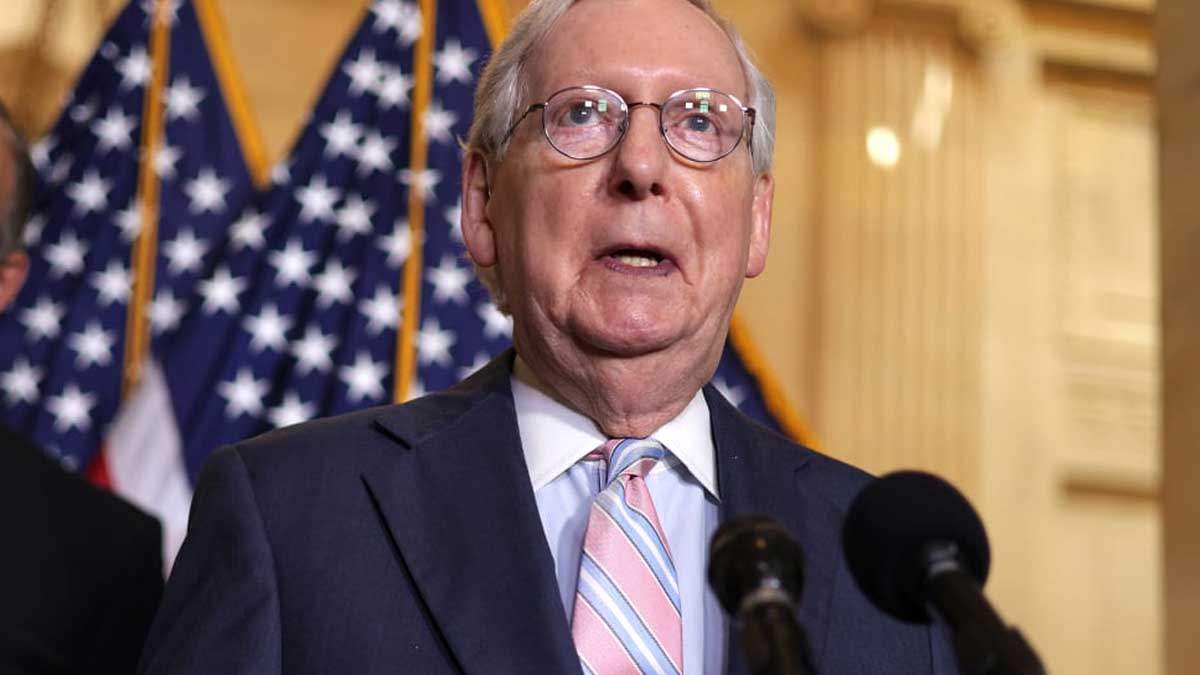- Home
- Billionaires
- Investing Newsletters
- 193CC 1000
- Article Layout 2
- Article Layout 3
- Article Layout 4
- Article Layout 5
- Article Layout 6
- Article Layout 7
- Article Layout 8
- Article Layout 9
- Article Layout 10
- Article Layout 11
- Article Layout 12
- Article Layout 13
- Article Layout 14
- Article Sidebar
- Post Format
- pages
- Archive Layouts
- Post Gallery
- Post Video Background
- Post Review
- Sponsored Post
- Leadership
- Business
- Money
- Small Business
- Innovation
- Shop
Recent Posts
Republicans Split on Response to Iran Drone Attack on Israel

Republicans in Congress have exhibited a spectrum of reactions in response to Iran’s recent drone attack on Israel, exposing deep divides within the party regarding the appropriate course of action amidst escalating tensions in the Middle East.
While a significant number of Republicans have criticized President Joe Biden’s handling of the situation, there is a noticeable split among GOP leaders on the question of whether the United States should pursue immediate military action against Iran. Most Republican leaders have opted for a cautious approach, refraining from outright calls for military retaliation.
Senator Marsha Blackburn (R-Tenn.) emerged as one of the few vocal advocates for swift and forceful U.S. retaliatory strikes against Iran. However, her position has not gained widespread traction within the party, with many Republicans opting for a more restrained response.
Senate Majority Leader Mitch McConnell (R-Ky.) struck a more tempered tone, suggesting that President Biden should lead an international effort to impose consequences on Tehran for its actions. Similarly, Senator Tom Cotton (R-Ark.) expressed strong support for Israel but stopped short of explicitly endorsing direct U.S. military retaliation against Iran.
House Speaker Mike Johnson (R-La.) indicated a willingness to collaborate with the White House to formulate a response, although he did not offer specific details. This suggests that some GOP leaders may be inclined toward exploring diplomatic solutions rather than escalating military tensions.
Former President Donald Trump, a prominent figure in the Republican Party, criticized President Biden’s response to the attack but did not advocate for immediate U.S. military action against Iran. Instead, Trump suggested that the attack would not have occurred under his administration, echoing similar sentiments regarding past events.
Former Trump National Security Advisor John Bolton, known for his hawkish stance on Iran, called on Israel to target Iranian oil refineries, defensive positions, and possibly their nuclear program. However, his recommendations have not garnered widespread support among other leading Republicans.
President Biden has reaffirmed the United States’ unwavering support for Israel but reportedly informed Prime Minister Benjamin Netanyahu that the U.S. would not participate in an Israeli counter-attack against Iran. This stance reflects Biden’s cautious approach to foreign policy, aiming to balance support for allies with a desire to avoid being drawn into broader conflicts.
Senator Lindsey Graham, a longtime proponent of a tough stance on Iran, criticized President Biden’s response, attributing the attack to what he described as the Biden Administration’s weakness on the global stage. However, Graham refrained from advocating for immediate U.S. military action, instead urging Israel to take necessary defensive measures.
Looking ahead, House Republicans, under the leadership of Speaker Johnson, are expected to advocate for legislation providing military aid to Israel. This follows a previous unsuccessful attempt to pass a similar bill, underscoring the challenges of achieving bipartisan consensus on foreign policy matters.
In summary, the range of responses from congressional Republicans underscores the complexities of U.S. foreign policy in the Middle East and highlights the difficulties of forging unity within the party on how to address the ongoing tensions with Iran.
Recent Posts
Categories
- 193 Countries Consortium Partner1
- 193cc Digital Assets2
- 5G1
- Aerospace & Defense48
- AI37
- Arts3
- Banking & Insurance11
- Big Data3
- Billionaires1,356
- Boats & Planes1
- Business332
- Careers13
- Cars & Bikes79
- CEO Network1
- CFO Network17
- CHRO Network1
- CIO Network1
- Cloud10
- CMO Network18
- Commercial Real Estate7
- Consultant1
- Consumer Tech194
- CxO1
- Cybersecurity73
- Dining1
- Diversity, Equity & Inclusion4
- Education7
- Energy8
- Enterprise Tech29
- Events11
- Fintech1
- Food & Drink2
- Franchises1
- Freelance1
- Future Of Work2
- Games149
- GIG1
- Healthcare79
- Hollywood & Entertainment203
- Houses1
- India’s 1000 Richest1
- Innovation46
- Investing2
- Investing Newsletters4
- Leadership65
- Lifestyle11
- Manufacturing1
- Markets20
- Media327
- Mobile phone1
- Money13
- Personal Finance2
- Policy569
- Real Estate1
- Research6
- Retail1
- Retirement1
- Small Business1
- SportsMoney42
- Style & Beauty1
- Success Income1
- Taxes2
- Travel10
- Uncategorized13
- Vices1
- Watches & Jewelry2
- world's billionaires1,325
- Worlds Richest Self-Made Women2
Related Articles
South Korea Plane Crash: A Tragic Loss and Global Mourning
The tragic plane crash at South Korea’s Muan International Airport on Sunday...
By 193cc Agency CouncilDecember 30, 2024H-1B Visa Debate Splits Trump Allies and Silicon Valley
The debate over H-1B visas has once again become a contentious issue,...
By 193cc Agency CouncilDecember 28, 2024Trump Moves $4B Stake in Truth Social Parent, Stock Drops 6%
Donald Trump recently transferred his 57% stake in Trump Media & Technology...
By 193cc Agency CouncilDecember 20, 2024House Rejects Trump-Backed Funding Bill, Shutdown Looms
The U.S. House of Representatives rejected a new government funding bill on...
By 193cc Agency CouncilDecember 20, 2024















Leave a comment